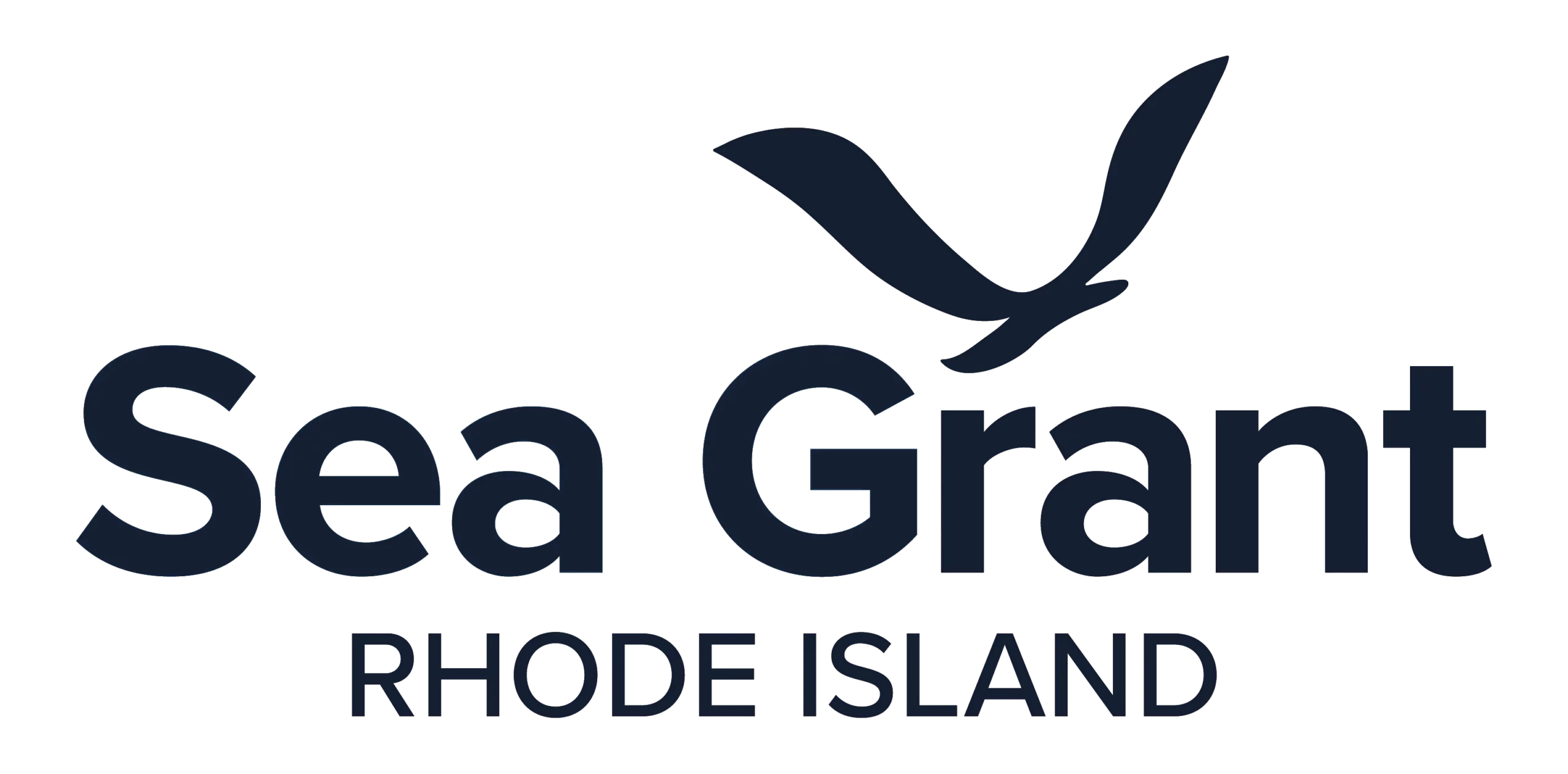Blue & You discussion series continues later this summer, fall
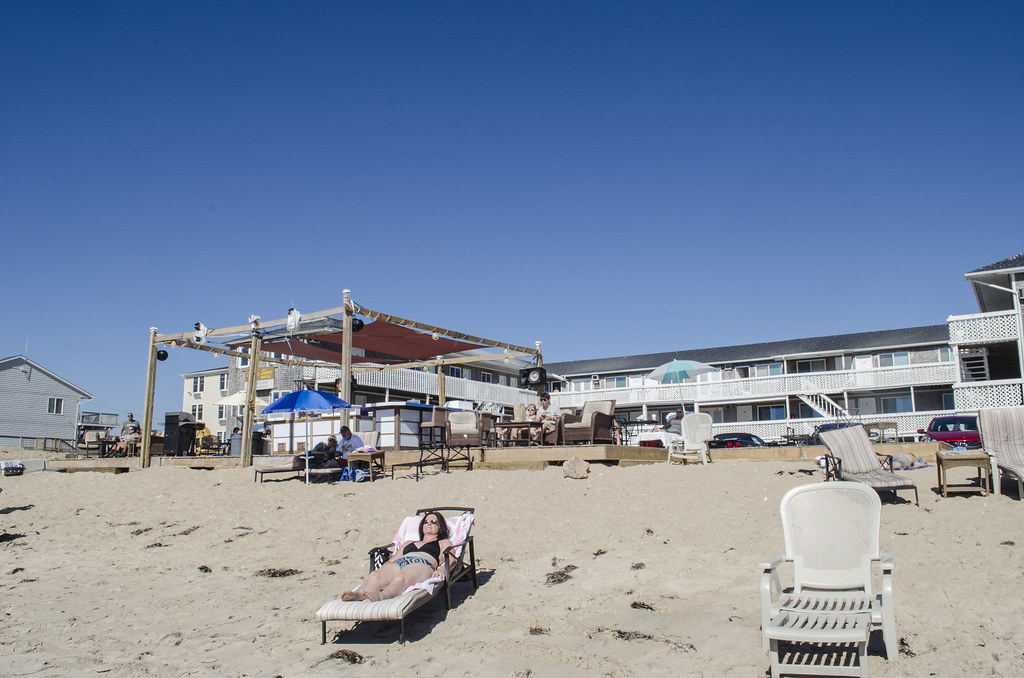
Temporary structures in Misquamicut post Sandy are designed to be movable in the event of a storm. Photo by Meredith Haas
Rhode Island’s blue economy—based on its ocean and water resources—is valued at $5.3 billion. The blue economy in the United States grows at a rate twice as fast as the national economy, presenting opportunities for coastal communities to foster economic prosperity while protecting the environment that blue economy businesses rely on.
With more than 6% of Rhode Islanders holding jobs in blue economy fields such as ports and shipping, tourism and recreation, offshore renewable energy, aquaculture and fisheries, marine trades, and defense, the Greater Newport Chamber of Commerce is hosting a series of panel discussions focused on “bringing together researchers, industry leaders, businesses, and interested individuals to strengthen our state’s robust blue economy and make valuable connections,” says Casey Tremper, coastal specialist with the URI Coastal Resources Center and Rhode Island Sea Grant.
The first session at the Westerly Education Center in June focused on coastal resilience and sustainable tourism.
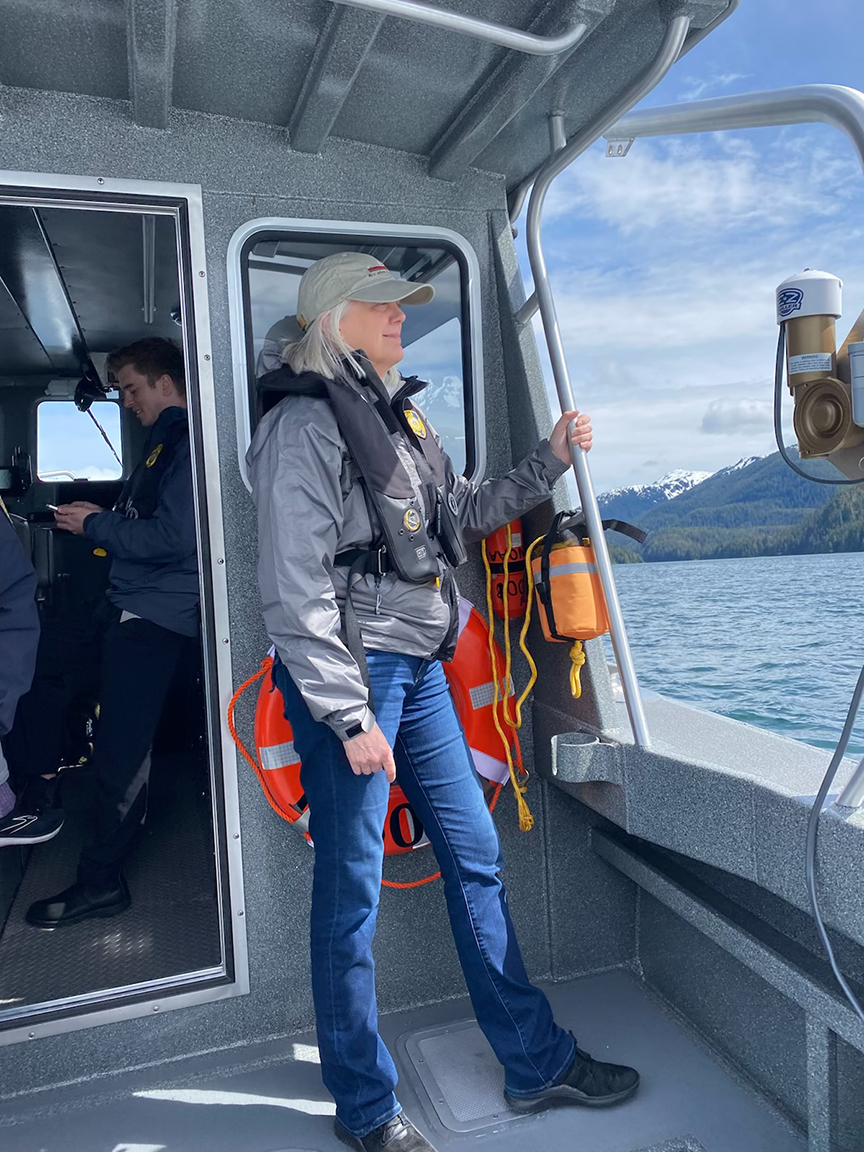
Janet Coit. Photo courtesy of NOAA
Keynote speaker Janet Coit, former administrator of NOAA’s National Marine Fisheries Service and former director of the Rhode Island Department of Environmental Management (DEM), highlighted the need for stewarding local blue economy assets and discussed how businesses in this sector can be critical in doing so.
She cited a DEM report highlighting “that we land over 100 different species of fish commercially here in Rhode Island,” and added, “both DEM and the fishing sectors … look for ways to be opportunistic. DEM has looked to work with the fishing community to give more flexibility to folks for changing their licenses. During COVID, we did a direct sale license, which allowed fishermen to sell directly to consumers and for retail use, and that, while small, has increased every year.”
She also described how ocean observing technologies and marine composites have many other uses, and added that the research done by URI and others is key to better understanding the marine environment and providing “the full springboard for data, products, and services that are needed across many sectors.”
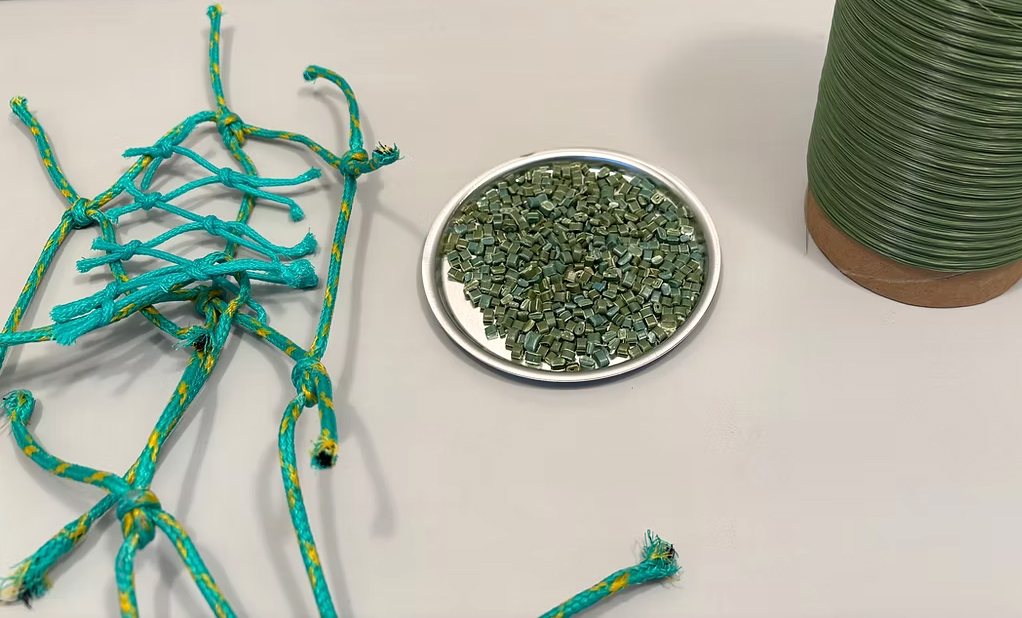
Kestrel Innovative Fibers is finding they can improve the process for recycling plastics from the marine environment, allowing materials to be recycled many times. Photo by Kestrel Innovative Fibers
Tremper moderated the panel discussion that included
- Lisa Konicki – President of the Ocean Community Chamber of Commerce
- Matt Behan – owner and founder of Behan Family Farms
- Dr. Josh Humberston – CEO of Coastal Measures
- Rob Torgerson – Founder and president of Kestrel Innovative Fibers (KIF)
- Darya Blout – Founder and CEO of Deep Blue Composites
Each of the panelists described their experiences, focusing on innovative strategies to promote the blue economy and be environmentally responsible, recognizing that there are many businesses reliant on maintaining the quality of the environment for long-term sustainability and resilience.
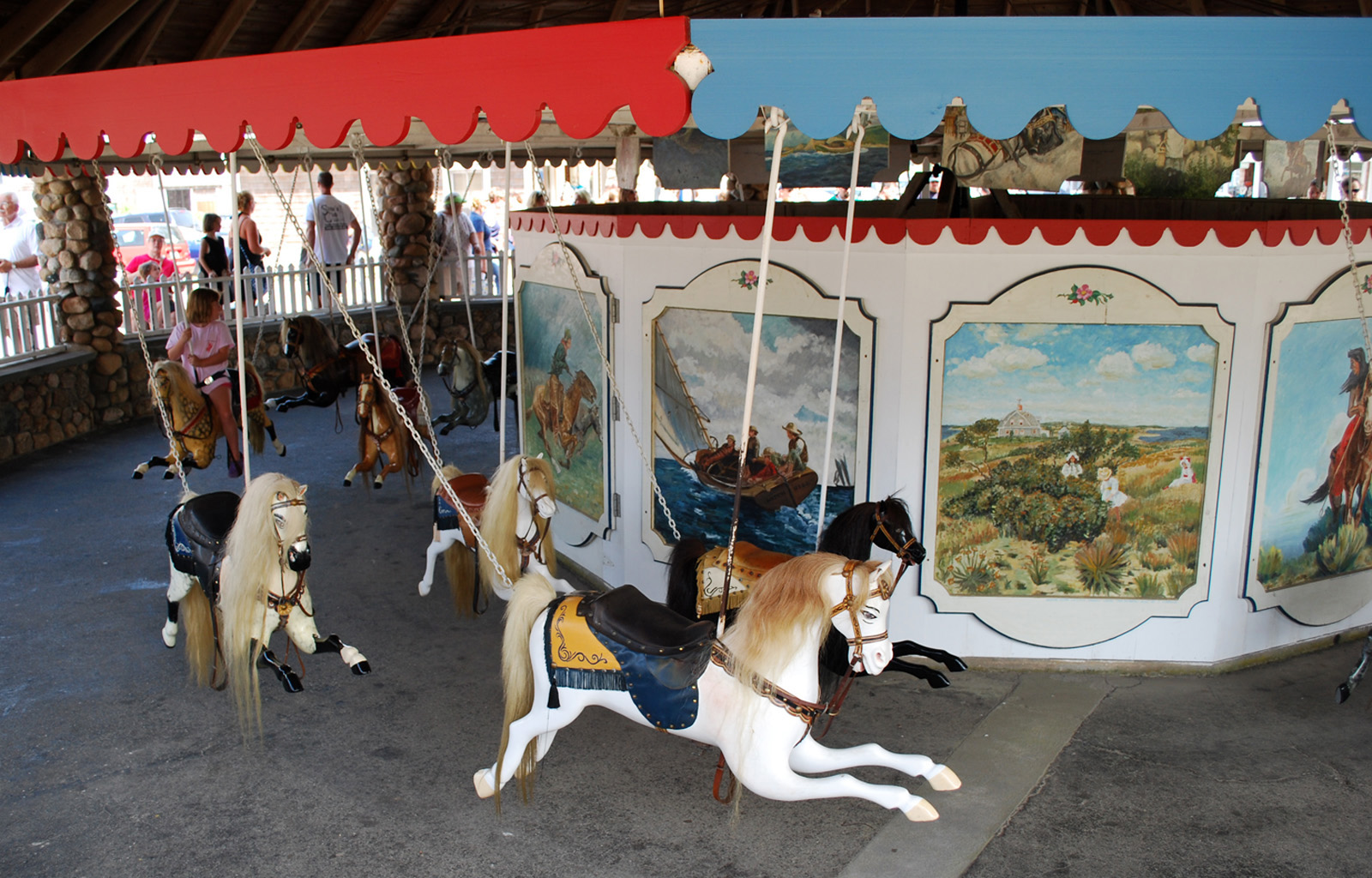
Lisa Konicki of the Ocean Community Chamber of Commerce said that some day, the historic Flying Horse Carousel in Westerly may be moved further from the beach to preserve it for future generations. Photo from Carousel History
Konicki explained that after a flood in Westerly in 2010, “That’s when our chamber kind of pivoted and said, ‘Is it our responsibility to take a more active role in terms of recovery and resilience in this area where we have so many businesses along the Pawcatuck River?’”
Konicki said her group fundraised and then “gave out grants to small businesses to help them recover from expenses that were not covered from insurance, and we worked with them on planning going forward, on things like evaluating their insurance policies or things that they hadn’t thought of prior to that episode.”
That experience helped the chamber respond two years later, when Superstorm Sandy unleashed even more damage on the town. The chamber worked with the businesses to help them through permitting processes and other challenges so that nearly every business was able to reopen for Memorial Day weekend. Many of them did so with new, more resilient approaches, such as reopening as mobile concession stands and bars that can be moved to higher ground in the event of a storm.
Torgerson discussed a project to improve the quality of recycled plastics, some of which, he said, come from ocean industries, including fishing nets and boat wraps. Typically, a plastic can only be recycled once, as it loses strength in the recycling process. Torgerson said his company is experimenting with an additive that when used in the recycling process “actually brought [plastic] back to its original state in the sense that it’s equal to, or better than, a virgin material,” thus enabling the material to be recycled multiple times.
Dive in:
The Blue & You series will host an event in Providence on August 12 focusing on fisheries and aquaculture and Northern Rhode Island on October 15 focusing on blue technologies. For more information, visit the Greater Newport Chamber of Commerce website.
The University of Rhode Island (URI) Research Foundation’s 2030 Blue Economy Action Plan for Rhode Island provides a framework to “advance Blue Economy opportunities [through] program development, infrastructure building, wider community engagement, and policy/regulatory asks.”
